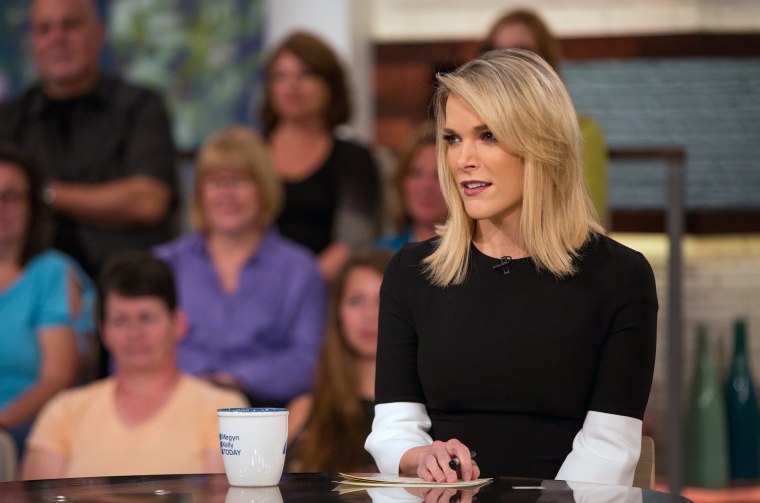Megyn Kelly has walked our halls and strolled our streets; she's a proud member of our high school’s hall of fame, and her work has put our hometown of Bethlehem, New York, on the map. But, as a group of young people of all different races, political beliefs and cultural backgrounds nonetheless united in fighting for a better future through a student club in her own high school, some of her recent comments have concerned us, and we hope that she hears us.
On Tuesday, she referenced our shared hometown when she said, “You do get in trouble if you are a white person who puts on blackface for Halloween, or a black person who puts on whiteface for Halloween. Back when I was a kid, that was OK just as long as you were dressing as a character.”
Those comments definitely do not speak to who we are in Bethlehem or at Bethlehem Central High School, from which she graduated in 1988. Blackface is not acceptable anywhere in America, and it is not acceptable in our town. We weren't alive when Megyn was in high school but, in the recollection of many of our parents who grew up around here, it was not acceptable even in the 1980s town that she knew.
That’s not to say that our community never struggles with racial equity, or never has struggled with racism. Our demographics create real blind spots, and the town of Bethlehem is 92 percent white, 2.5 percent African American, 3.2 percent Asian American and 2.7 percent Latino, according to the 2010 census.
And blackface, of course, was part of a broad and sordid tradition of masking racism in the “humor” of minstrelsy; people who lived in our area were not immune. Our local newspaper’s records show that minstrel shows were performed as fundraisers in our elementary school gym as late as 1960 (albeit a decade before Megyn was born).
Perhaps its staying power even in the northeastern United States despite its obvious bigotry speaks to the pernicious role that blackface played and still plays in broadly normalizing racist caricatures. Jim Crow, after all, was a blackface character long before he was shorthand for systematic oppression.
Racism might have become more subtle in the intervening years, but it remains just as potent a force in the society into which we're about to enter as adults. The reason that Megyn's comments about blackface being "OK" when she was a kid (let alone her statement at the time that "I don’t know how [blackface] got racist on Halloween," in response to prior critics of the practice) were so offensive is that blackface is a projection of the racism that lies much deeper, and a symbol of times that are not quite as far past as we may wish to admit.
As young people, we know that racial stereotyping and institutional discrimination hurts all of our futures. On race and so many other issues, our generation is waking up to a world in need of fixing — and it’s falling on us to make change happen.
We all have times when we use words poorly — just ask our English teachers. We cannot judge each other by our worst moments, and believe Megyn when she says that her recent comments do not speak to who she is. We know full well that one of the hardest things to do is to apologize, and we thank her for doing so. But retroactively showing “sensitivity” isn’t nearly enough to prevent the cycle from continuing.
We must go further. The solution is not sweeping these uncomfortable ideas under the rug; it’s facing them head on with appreciation for their context.
With more diversity of all types — on both sides of the camera — Megyn's employer, NBC News, could approach these difficult topics with the care they deserve. By allowing America to hear the stories of those who have suffered from stereotyping and institutional racism, she and they could spur important conversations. Her words carry weight like few others with those who most need to hear these stories, and whatever happens, she still has a platform that few possess. Whatever her journalistic future brings, we hope she uses it to make a real difference and bring "more understanding, love, sensitivity and honor" to these issues in the future, as she promised in her apology to do.
There is often an idea today that young people like us are apathetic, brainwashed into certain ideals by those above us and too disengaged to make a difference. Nothing could be further from the truth. We’re speaking for ourselves here, as our own small part in the conversation America needs to have.
If there's one thing about our generation, it's that we do not accept the status quo. Perhaps it’s naïveté, but in a society still bearing the scars of the times of blackface, a little bit of the innocence of hope might be necessary.



